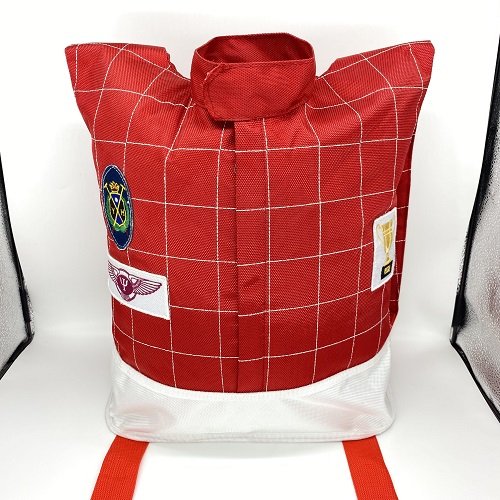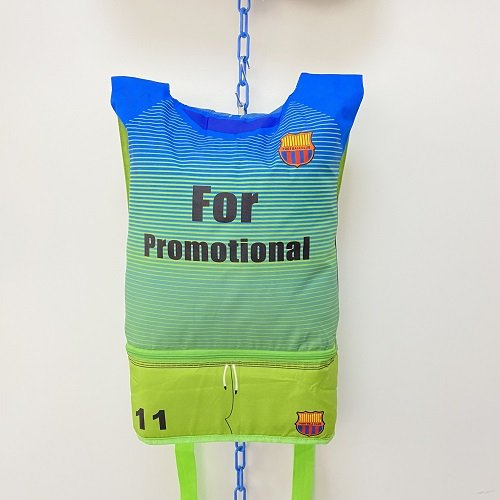Backpacks are essential items for students, professionals, hikers, and travelers alike. When selecting a backpack, the material is a crucial factor to consider, with polyester being a popular choice. This article explores the advantages and disadvantages of polyester backpacks to help you make an informed decision.
Introduction to Polyester Backpacks
Polyester, a synthetic fiber derived from petroleum, has become a staple in the textile industry due to its durability, versatility, and cost-effectiveness. Polyester backpacks, therefore, are widely available and favored for their balance of performance and affordability.
Advantages of Polyester Backpacks
Durability and Strength
Polyester is known for its robust and resilient nature. Backpacks made from polyester are resistant to stretching and shrinking, which helps them maintain their shape and integrity over time. This durability makes them ideal for heavy use, whether for school, travel, or outdoor activities.
Water Resistance
One of the significant benefits of polyester backpacks is their resistance to water. While not entirely waterproof, polyester fibers are less absorbent compared to natural fibers like cotton. This property helps keep the contents of the backpack dry in light rain or damp conditions, making them suitable for various weather scenarios.

Affordability
Polyester is generally less expensive to produce than other materials like nylon or leather. This cost-effectiveness translates to more affordable backpacks, making polyester an attractive option for budget-conscious consumers without sacrificing quality.
Versatility in Design
Polyester can be easily dyed and printed, offering a wide range of colors, patterns, and designs. This versatility allows manufacturers to cater to diverse consumer preferences, providing aesthetically pleasing options for different tastes and styles.
Low Maintenance
Caring for a polyester backpack is relatively simple. The material is machine washable and dries quickly, which is convenient for those who use their backpacks frequently and may need to clean them often. Polyester's resistance to wrinkles and abrasions further reduces the need for intensive maintenance.
Disadvantages of Polyester Backpacks
Environmental Concerns
Polyester production is energy-intensive and relies heavily on non-renewable resources like petroleum. Furthermore, polyester is non-biodegradable, contributing to long-term environmental contamination. The microplastics shed from polyester products during washing can also harm aquatic ecosystems.
Breathability Issues
Polyester is not as breathable as natural fibers, which can be a drawback for backpacks intended for rigorous outdoor activities. The lack of breathability can lead to heat and moisture build-up, potentially causing discomfort during extended use.

Chemical Treatments
Chemical treatments are frequently used on polyester backpacks to improve qualities such as water resistance and stain repellence. These treatments can involve potentially harmful substances that may pose health risks over time or through prolonged exposure.
Comparatively Lower Strength
While polyester is durable, it generally offers lower tensile strength compared to nylon. For heavy-duty applications where the backpack will carry significant weight or be exposed to harsh conditions, nylon or other high-strength materials might be preferable.
Tips for Choosing a Polyester Backpack
When selecting a polyester backpack, consider the following factors:
Intended Use
Determine the primary use of the backpack.For school or regular usage, a basic polyester backpack with compartments may suffice. For travel or hiking, look for additional features like padded straps, multiple compartments, and enhanced water resistance.
Quality and Construction
Examine the quality of the polyester fabric and the overall construction of the backpack. High-denier polyester is thicker and more durable. Check the stitching, zippers, and reinforcements at stress points to ensure longevity.

Brand Reputation
Opt for reputable brands known for their quality and customer service. Brand reputation can be a good indicator of the overall reliability and performance of the backpack.
Environmental Impact
Consider backpacks made from recycled polyester or those by brands committed to sustainable practices. Supporting environmentally conscious businesses can help you reduce your carbon impact.
Conclusion
Polyester backpacks offer a blend of durability, affordability, and versatility, making them a popular choice for many consumers. By weighing the pros and cons and considering alternatives, you can choose a backpack that best suits your requirements and aligns with your values. If you want to buy a new polyester backpack from market, look no further than Neway! Click the link to browse our site today!

